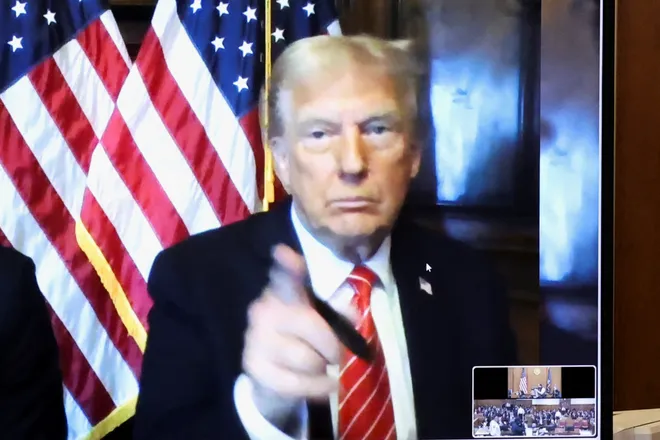Gambiaj.com – (NEW YORK, United States) – In nine days, Donald Trump will become the first convicted felon to take the oath and serve as President of the United States. Judge Juan Merchan’s sentencing of Trump to an “unconditional discharge” places a judgment of guilt on his record just days before he officially reclaims the White House on Jan. 20.
Trump will not go to jail or face any other punishment for his criminal conviction, but Merchan noted that Trump’s inauguration would not erase the jury verdict. Unless the conviction is overturned, some of his rights could be affected.
Now that he has been sentenced, Trump has 30 days to file a “notice of appeal,” a process which could take years and play out while he is serving a four-year term as president.
For now, here’s what you need to know:
Can Trump still vote?
The New York native is registered to vote in the state of Florida, and he will be able to vote in future elections. According to Florida law, people convicted of felonies are not allowed to vote, but once they complete their sentence, their right to vote is restored.
Trump was convicted of a felony in New York. According to Florida law, a person cannot vote if they lose the right to vote in the state where they were convicted. Similarly to Florida, New York restores the right to vote once a person is released from prison. Since Trump is not spending time in prison, he would not lose the right to vote.
Can Trump hold office?
The U.S. Constitution does not include any language that would prevent presidential candidates with a criminal record, with the only requirements to run for president being that the candidate has to be at least 35 years old, a natural-born U.S. citizen, and to have lived in the country for at least 14 years.
Does Trump have to give a DNA sample?
By law, every person convicted of a felony in New York must provide a DNA sample for the state’s crime databank.
Samples are collected after sentencing, typically when a defendant reports to probation, jail or prison. Samples can also be taken by a court or police official.
It’s a noninvasive process involving a swab along the inside of the cheek. State police analyze the cells and genetic material, creating a profile that is then entered into the databank.
There, technology takes over, performing automatic searches and comparing profiles of people convicted of crimes with profiles of DNA collected at crime scenes. Matches can be used to identify a suspect in an unsolved crime.
New York’s databank contains profiles for more than 720,000 offenders and is connected to the FBI’s Combined DNA Index System.
Can Trump pardon himself?
No, since the felony conviction was given in a state court and involved state law, the only person who can pardon Trump is New York Democratic Gov. Kathy Hocul.
Hochul has previously said a pardon for Trump might not be in the cards.
“There is a pardoning process in the state of New York. It is lengthy,” Hochul said at a news conference reported on by The Hill. “It requires a couple of elements. One is remorse.”
“Now that it is over, we will appeal this Hoax,” Trump wrote in a social media post after the hearing on Friday.
“As the American People have seen, this ‘case’ had no crime, no damages, no proof, no facts, no Law, only a highly conflicted Judge, a star witness who is a disbarred, disgraced, serial perjurer, and criminal Election Interference,” Trump added.
Can Trump own a gun?
No. According to the United States Probation Office, “anyone who has been convicted of a felony is banned by federal law from ever possessing ‘any firearm or ammunition.’”
Back in 2023, Trump grabbed headlines after apparently saying he would like to purchase a gun during a visit to a South Carolina gun store.
“I want to buy one,” Trump said at one point. “Isn’t a Glock a great gun?”
Trump posed for pictures with the gun – his entourage included Rep. Marjorie Taylor Greene − but he did not actually buy it. Following the visit, his campaign clarified the incident, saying Trump had not purchased a weapon.
Can Trump travel outside the U.S.?
Yes. As president, Trump will have a diplomatic passport enabling him to travel to foreign countries for official business and can also keep a regular, or tourist passport. People sentenced to incarceration or probation can have their passports denied or revoked, but that isn’t the case with Trump.
Some countries restrict or reserve the right to prohibit visits from people with felony convictions, including Canada, the United Kingdom and Israel.










